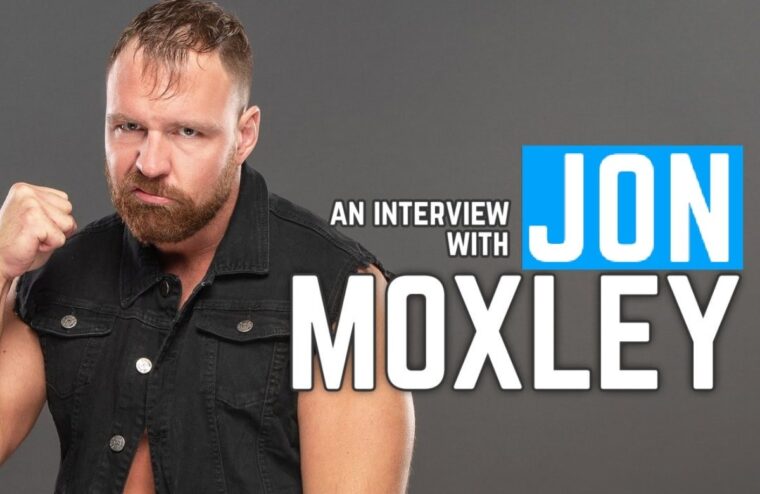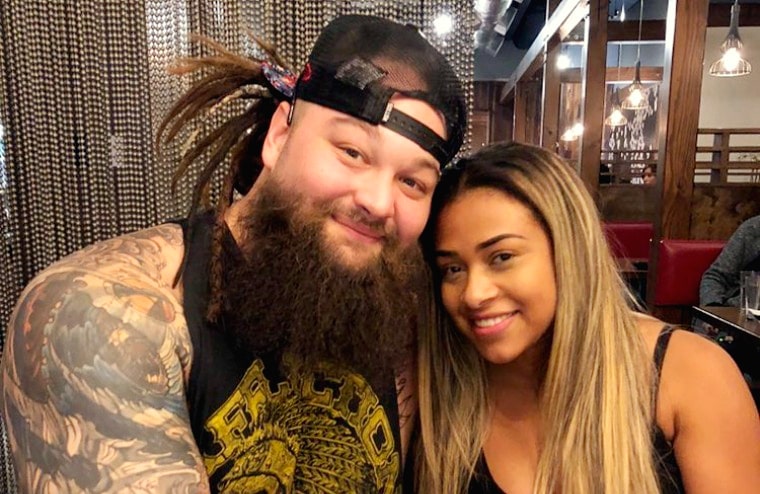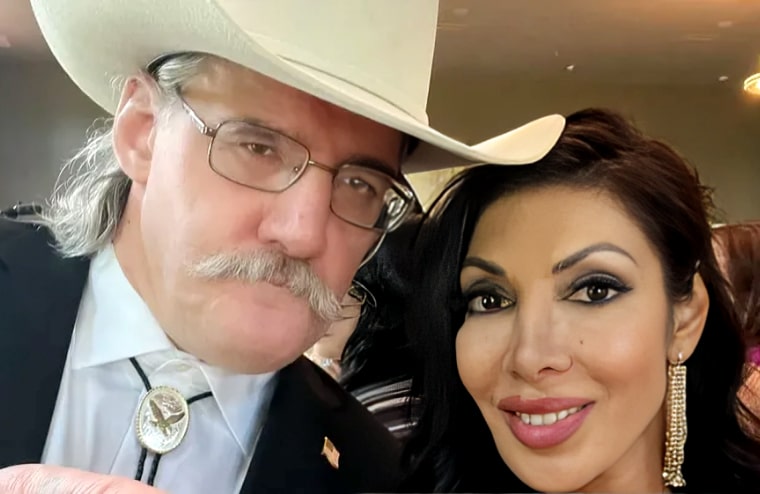Jon Moxley has strived to leave a lasting impression every time he sets foot in the ring. When fans turn up at an All Elite Wrestling show, he wants his new company to do the same.
“We’re coming in to blow the roof off,” Moxley said. “We want people to leave the building saying, ‘Every time AEW comes to town, we gotta go!’ ”
AEW made its cable television premiere in October of last year with its weekly program, “AEW Dynamite” (airing Wednesday’s at 8 p.m. on TNT). With established wrestling superstars like Moxley, Cody Rhodes, Kenny Omega, The Young Bucks, Pac, and Chris Jericho, and exciting up-and-comers in MJF, “Hangman” Adam Page and Darby Allin, among others, “AEW Dynamite” has already received an extension from TNT through 2023. Combined with the financial power and backing of billionaire entrepreneur Shahid Khan, AEW is the first wrestling promotion in more than 20 years with a legitimate opportunity to make a mark on a business long monopolized by World Wrestling Entertainment.
“To be in on the ground floor of something, this is kind of a renaissance or revolution, if you will, of pro wrestling,” Moxley said. “It’s cool to be a wrestling fan in 2020.”
Moxley, a 16-year veteran of the business, is widely known for his nine-year stint at WWE, where he wrestled as Dean Ambrose. He held multiple championships, including the WWE title, but ultimately grew frustrated with the influence the company had on his character and the restrictions placed on him in and out of the ring.
Not long after leaving WWE, Moxley made his AEW debut, and he feels both vindicated and invigorated by his new career path.
“I feel like I’m 18 right now,” Moxley said. “Every time I leave the ring, I just can’t wait to get back out there again. It’s hard to describe, but it almost feels like we’re all one giant team, everyone at AEW and our fans, all brought together by this crazy thing we all like called wrestling.”
Moxley chatted in-depth about making the move to AEW, working with New Japan Pro Wrestling and his recent Tokyo Dome debut, and his “old-school” Ohio beginnings for a Web Is Jericho exclusive.
Q. It’s been a few months since “AEW Dynamite” premiered on TNT. What do you think AEW has gotten right so far?
A. “The number one thing is the energy that’s evident in the show every week when you watch on TNT, and more so live. It’s a party atmosphere. It’s almost like a concert. When we come into these markets every week, it’s the first time we’re in that market because we’re still so early into this. It’s kind of become an all-for-one atmosphere with the fans. One thing we’ve definitely got right is listening to the fans and giving them what they want. They want action, they want excitement. They don’t want any kind of canned horse shit. Pro wrestlers, in general, are kind of free spirits and rebellious rogue types getting into this profession in the first place. But at AEW, we have the most rebellious and the most renegade personalities and free spirits. It’s fun for me to watch all these young guys — Jungle Boy, Sammy Guevara, Darby Allin, Joey Janela — it’s fun to see these guys getting a shot on the national and world stage. They’re getting to be themselves. They’re not encumbered by anything. They don’t have to try to toe any company line. They’re not having to try to fit into any mold. They just get to go out there and be themselves. That makes for a more authentic and passionate performance in the ring. That’s what fans want to see.”
Q. Conversely, are there any areas that AEW needs to improve?
A. “There probably are. Not every single thing on every single show is a home run. We all make little mistakes. Sometimes you second guess yourself a little bit in thinking certain things could have been better. But the cool thing about it is that it’s so new. A lot of people think that we’re probably in some honeymoon period, and everything is all good and gravy right now, but that we’re sure to come upon some roadblocks. And we probably will. For instance, I screwed up the one pay-per-view having to get surgery. We had to work around that. That was a horrible block in the road, not just for me but for the whole company. But we figured out a way to navigate that and get back on track. Stuff like that is gonna happen, it’s just about listening to fans and seeing what works and what doesn’t and being honest about it and not trying to force-feed things that aren’t working. A lot of people like to think they know better than the fans, but that’s not what it’s about. For us, it feels like we’re all on the same team. I feel like if we just stay in tune with the fans, we’re gonna be in good shape.”
Q. What’s been the biggest adjustment for you in coming to AEW?
A. “Stuff like being in control of my own schedule, trying to figure out how to do that instead of somebody just handing you your schedule. I have a lot of other stuff on my plate as far as travel and making sure that I don’t spread myself too thin. But besides that, all the adjustments have been positive. I just love being in the ring, and I just love wrestling. Pushing this whole thing forward and making it work is the fans and their incredible passion and energy every time we come to a new market. We know that we’re the unproven commodity in the marketplace, and when we come for the first time, we’ve got to make sure everybody leaves wanting to come back.”
Q. You had one of the more high-profile exits from WWE. Because of that, was there any added pressure when you made your AEW debut?
A. “Not really. When I decided to leave, I didn’t have much of a real distinct plan. I figured I would just disappear for a year and figure things out. The timing of the AEW opportunity just worked out. The timing of it was almost spooky. I try not to put any external pressure on myself, whether it be in AEW or in New Japan or anywhere else. I just wanted to get back to enjoying wrestling again. Wrestling fans are always gonna be there to welcome you back through hard times or injuries or whatever. We’re all one big family, and they’ll always be there to pick you up and push you forward, and that’s kind of what happened with me. I’m just riding the wave.”
Q. Currently you’re building up your feud with Chris Jericho, and you’ve worked with him a few times over the years. What have you learned from your experiences with Chris?
A. “Chris is a guy whether he’s trying to stab your eye out with a spike or not, he’s a guy you can always observe and watch and learn from. He’s one of the smartest guys in the history of the business. He always has his finger on the pulse of what’s going on. That’s why he was smart enough to know that coming to AEW was the right move, and this is the new, cool thing. And that’s why he’s been able to do this at the top of his game through multiple decades now.”
Q. You’ve had great matches recently in the Tokyo Dome, and you’ve also teased a feud with Minoru Suzuki. Do you see the potential for more crossover between AEW and New Japan in the future?
A. “I walk back and forth through that door at will. Obviously, they have their main business in Japan, and ours is here. But there are so many great performers over there that fans would love to see in the United States and vice versa. I think the more going on outside of WWE and the more doors that are open and the more fences and bridges that are down, the better it is for everybody. Who knows what that will look like in the future? But for me it’s about going where I want and doing whatever the hell I want to do.”
Q. Talk a little about the experience in the Tokyo Dome?
A. “It was awesome. It’s a really cool and crazy atmosphere and such a legendary building. The fans in Japan are such a different style, and it’s addictive. It’s something you want to do again. I fell in love wrestling in Japan when I was over there with WWE, and I always knew I wanted to come back. I always had a feeling the back of my mind that I would, and the Tokyo Dome is kind of the pinnacle of wrestling in Japan. So to get the opportunity, not only to perform in the Tokyo Dome, but to be in a Texas Death Match was really awesome. To be a part of that was totally different than anything else on the shows all weekend, which was awesome, and we beat the absolute living hell out of each other. It was a hell of an experience. I was on cloud nine, and I was also able to bring my wife to Tokyo, who had never been there before. As long as she’s with me, it feels like I’m never away from home. I already love Japan, and that made it even better.”
Q. Does being from the Midwest and specifically Ohio have any kind of influence on your style or how you have handled yourself in the business?
A. “I came up very old school in the Heartland Wrestling Association and Les Thatcher’s Main Event Pro Wrestling Camp. Everyone there, including the head trainer, Cody Hawk, was super old school. With Les’ philosophies of wrestling in the ’60s, I trained for a year before I ever had a match. Before I could even start training, I had to sell popcorn and sweep floors and learn how to build the ring. Just being able to get in the ring was a privilege. It was an old-school, learn-to-call-it-in-the-ring sort of mentality. There was a lot of focus on the basics and doing lots of drills. But a lot of those basics and fundamentals have stuck with me, and I rely on them from time to time, especially when stuff goes haywire on live TV, or in some crazy match in the Tokyo Dome. The more fundamentally sound you are, and the more you have those things etched into your brain, the more they can save your ass. I’m definitely happy the way I was originally brought into the business.”
Q. AEW just recently got the four-year extension from TNT. Where would you like to see AEW and yourself four years from now?
A. “It’s hard to say because you don’t want to put any parameters or limits on what we can do. The main thing for us is establishing and carving out our place in the business. That’s a big step. It happened really quickly getting the extension, so our chance to continue establishing ourselves is not going away anytime soon. TNT and the people at Turner are committed to this. All the wrestlers and staff and crew are fully committed to making this last. It was also pretty gratifying to get that extension so quickly, especially since we were immediately counter-programmed. That was meant to not let us even get a foothold or even get out of the starting blocks. We’ve weathered that, and now we have four years locked in, so we’re gonna be able to do this. We’ve got plenty of time to really establish our foothold and grow our fanbase. Hopefully, we keep putting more people in the buildings and getting more eyeballs on TV, so when people hear AEW on the street, they know what it is. When a lot of people think of wrestling, they think of WWE. You think MMA, you think UFC. It’s like the brand is bigger than the sport. But I want people when they think of wrestling to think of AEW. It may never get to that same level on name recognition (as WWE), but I want people to see the AEW logo on the TV and know what it is.”
- Chris Jericho Debuts New Entrance Music On Dynamite - April 25, 2024
- Details Revealed On New Chris Jericho Horror Film - April 25, 2024
- Sebastian Bach Reveals What’s Standing In Way Of Skid Row Reunion - April 23, 2024




